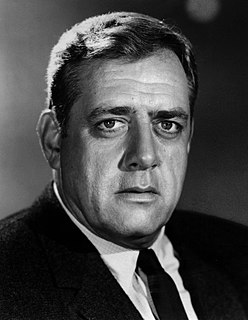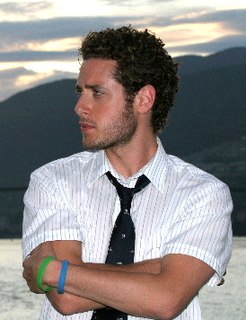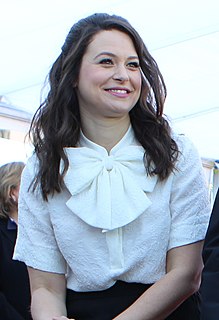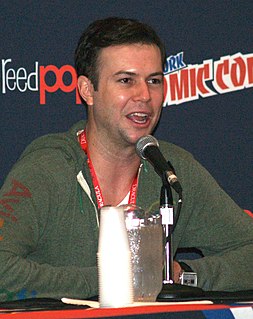A Quote by Raymond Burr
Over a period of time, if you have a successful show, then you have a devoted audience. I feel you owe something to them. That goes for everybody - writers, camera operators, actors, studio executives, etc. Sadly, I've realized it's a responsibility that very few people live up to.
Related Quotes
It's something that I know how to do because I taught for a very long time, so I can do it, and I feel a responsibility to do it - for instance, in this situation, where I'm touring specifically for this period of time. But most writers are not public people. There are a few writers out there who really enjoy it and are good at it, and can both work and do that at the same time, but I'm not one of those people.
A sitcom, you rehearse for four days of the week and then you shoot it all in one night in front of a studio audience. It's like a play every week, you just shoot it over a seven or eight-day period with a single camera. I enjoy this format of show much more. I'm a feature guy. I like making movies. So the four camera thing I didn't love it that much. I found myself slightly out of my element.
I do feel like I owe something, but not to the industry. When you say "industry," I think of a group of people who don't really care much about you and treat you as a commodity. So, in that regard, I don't feel like I owe anything. But the people who've always been supportive of me and have always seen me for my greatest potential-those are the people who I feel like I owe something to. I feel like I am their voice. I owe it them to represent them in a way that they can be proud of.
A good writer - and I think it's this way with actors too - even if you have two lines, you have to do the same complete work as if you're number one on the call sheet. If you get in an elevator and somebody gets on, rides two floors and gets off, that person has a reality that goes back to when they were born. They have memories, they have people, they have a life. They are doing something right now that the camera is on them in their space. We live in our own close-up all the time.
In this type of cinema, whether working with actors or non-actors, as much as you do direct them, if you allow yourself to be directed by them, then the end result will be much more pleasing. The real and individual strengths of the actors is allowed to be expressed and is something that does affect the audience very deeply.
I try and shoot as often as I can, I cross shoot. I have at least two cameras rolling at the same time. So I'll have two actors or two sets of actors at a time so everybody's basically on camera. So when they improvise we have everybody's coverage. And you can then go in the editing room and find the energy still stays there.



































